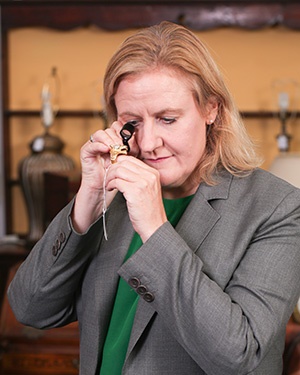How Auction Houses Work
Demystifying the process
In this article, we look at everything you should know about auctions.
16/11/2021
Auctions are one of the most exciting but intimidating ways to get a good deal on something you're looking to purchase. The technique is pretty straightforward, despite at first glance appearing complicated. Knowing how to bid, research, and comprehending the function of auction houses, are all essential skills for a savvy buyer. After all, an auction has three sides: buyers, sellers, and the referee (Auctioneer) who sits in the middle.

How to sell at auction
To sell something at auction, you must first get your item valued. This valuation and assessment can be done in person, or online by sending the auction house pictures (via email or WhatsApp). One thing to keep in mind is that the Valuers (Specialists) should be qualified and experienced. Qualified Valuers are held to a set of standards, not just in terms of the methodology they apply, but also in ethics. Once you've decided which auction house should value your item, the chosen expert(s) will work their magic and give you an estimate of its worth at auction.
This leads us to our next point: what precisely is the method that they use?
How Auctioneers Determine an Estimated Value
Before arriving at an estimate, a Valuer weighs a variety of essential criteria. These experts are incredibly detail orientated, and examine:
- The artwork quality
- Size
- Subject matter
- Complexity
- Rarity
- Previously achieved hammer prices
- Current market value
- Consultations with art historians/curators and specialists, such as gemmologists, may be necessary for technical anayses and grading, which is part of the valuation process.
The auction house should explain their terms of sale, fee structure, and agree (with you) any reserves that are to be placed on an item once you know how much it is worth. A reserve is the minimum price the auctioneer will accept for your item during bidding, and is strictly confidential. You should also consider if you need to hire movers to transport your items to the auction house - some auction houses will handle this for you, while others will leave it to you.

Buying at Auction - Pre-Auction Day
A week to 10 days before the sale (time frame may vary - depending on the auction house), your chosen auction house will activate an online catalogue (and/or distribute hard copies) relating to that auction. This period of time pre-auction, allows purchasers to view items in person or online, and to conduct research / navigate through a wealth of information about each piece, including pricing and information about the item's history (as well as condition) - all crucial aspects to being a wise shopper.
If you are looking to purchase a high price item (lot), request a detailed condition report from the auction house specialist. Before the sale, most Auction Houses will allow viewings by appointment, or conduct a public display for a few days. At this point in time, propsective buyers are able to view each lot in person. If you can, do make an effort to inspect the lot for yourself.
Another crucial aspect of the purchasing process is the willingness to ask questions - it will assist you in making a better informed decision about how much to bid. It's fine to enquire about how the experts came up with the price of a lot. Check to see if the lot has any other bidders, as that can often indicate you may have a battle on your hands to win the lot you really want.
Buying at Auction: Auction Day
If the item is large, or you live far away, enquire with the auction house about shipping partners and delivery options beforehand. Sometimes this cost can be considerable enough to be included in your calculations for bidding.
Ensure you have registered with the auction house prior to the sale, whether you decide to bid in person/telephone/commission, or online, always allow enough time for your application to be processed. Most auction houses will require ID for first time registrations. For in person bidding, you will be provided with a bidding number paddle, which you will need for auction.
Make sure you are satisfied with the item and its condition, and have a maximum price that you are prepared to pay in mind. This maximum price should take into account buyers commission fees/charges, which are a percentage charged on top of hammer price. Whilst you can always get carried away during the bidding, if you know what your limits are, you can avoid any chance of buyer's remorse.
Be prepared to settle your invoice within a few days of the auction, and make sure you have familiarised yourself with acceptable methods of payment.
Before you bid and buy, like with any other major financial transaction, it is always a good idea to get specialist advice, and our experts at Dawsons are always on hand to answer questions you may have about any item.
Most importantly, enjoy yourself! Bidding at auction can be very exciting, satisfying and extremely rewarding.
Please do get in touch, should you have any queries or maybe you have an item you would like to have valued.
We would love to hear from you.
Call us on 0207 431 9445 or get in touch via email on info@dawsonsauctions.co.uk.